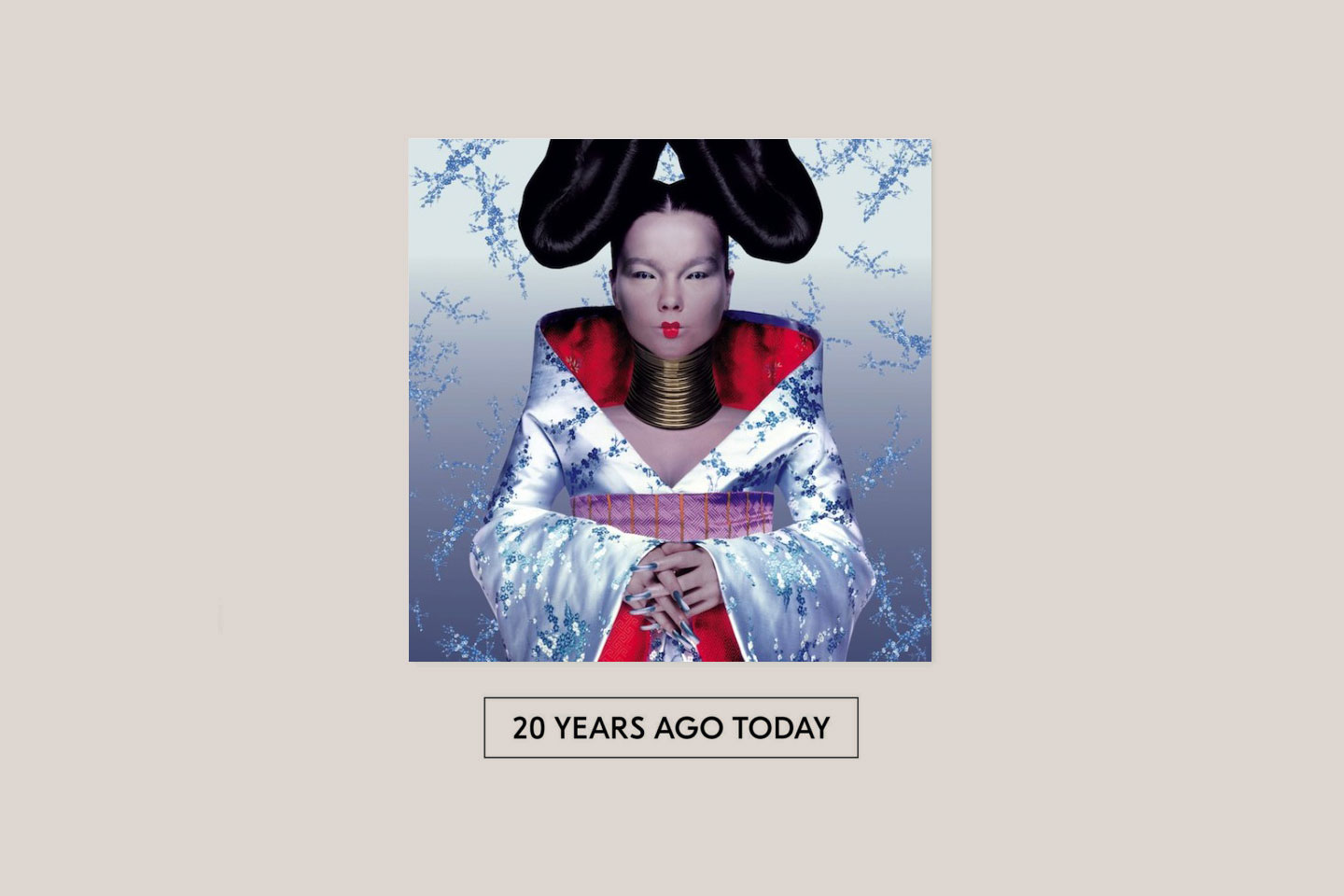Indeed ‘Homogenic’ finds Björk waging a kind of campaign of love throughout, albeit not for a specific other person but more for everything, and for the electricity of just being alive. “You can’t say no to happiness”, she yells during ‘Alarm Call’, one of the album’s most direct moments. Elsewhere that electricity manifests itself in a desire for unbridled intensity, for a sort of cybernetic rapture: “excuse me but I just have to explode!” announces ‘Pluto’, “a state of emergency is where I want to be,” attests ‘Jòga’, while on ‘Bachelorette’ Björk produces perhaps the most self-assured, elemental image of the entire record: “I’m a fountain of blood in the shape of a girl”, she sings, sculpting herself in the very essence of life, as unassailable strings swell beneath.
Then again, in yet a further contradiction, that focus on self-actualisation is repeatedly disrupted, with Björk turning momentarily bashful and chastising herself on both ‘Immature’ (“How extremely lazy of me!”) and ‘Hunter’ (“How Scandinavian of me!”). It complicates ‘Homogenic’, sure, but for the better: the result is an album with startling three-dimensionality – honest, human, nuanced – which, along with similarly textured music, is surely why the album still sounds so arresting after twenty years.
Björk would go on to make even denser records – in particular, ‘Medúlla’, constructed only by voices, and the techno-naturalist statement of ‘Biophilia’ remain foreboding monoliths in her catalogue – but nonetheless, one can trace all of her subsequent music back to ‘Homogenic’. Its single-issue sense of intent marked a decisive, successful development, and that thematic focus, alongside the album’s fearless emotional sensitivity and technical meticulousness, has since become quintessentially Björkian, whether it’s manifested in the sensuous euphoria of ‘Vespertine’ or in ‘Vulnicura’’s exposed heartache.
That foundation-building quality alone is enough to make ‘Homogenic’ Björk’s most important album. However, revisiting the album twenty years on, it’s unavoidable how much it also resembles a modern template for successful artistic reinvention more generally. The internal paradoxes of Kanye West’s ‘808s And Heartbreak’, for example, seem to echo those on ‘Homogenic’; even more pertinently, it’s almost uncanny how much ‘Homogenic’ presages perhaps the single most radical departure of any band in the past twenty years, that of Radiohead with ‘Kid A’. In its approach and inspiration, its execution and particularly its shape – from brooding opener to lightly ambient mid-album interlude to beatific and shimmering harp-laden finale – Radiohead’s fourth record corresponds eerily with Björk’s third. Even more impressive for ‘Homogenic’, the fact that Thom Yorke has subsequently cited ‘Unravel’ as his favourite ever song suggests that those similarities are not entirely coincidental.
It’s quite the legacy. To change one’s own creative path is important, but to make ripples that clearly affect others of such standing suggests influence on top. A year before all this, Björk’s inescapable tagline had been “shh”. After ‘Homogenic’, she didn’t need to tell anyone to shut up.
Also out this week in 1997:
Stereolab – Dots & Loops (Duophonic UHF), chart peak #19
Finley Quaye – Maverick A Strike (Epic), chart peak #3
Dubstar – Goodbye (Food), chart peak #18
To read all the other entries in Sam’s Twenty Years Ago Today blog, click here.
